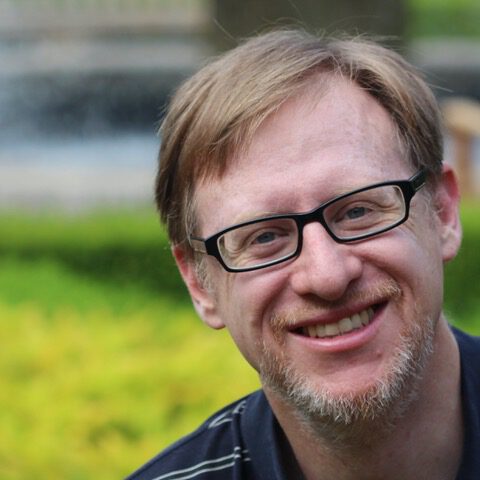by Eric Yarnell, ND
If you have an elevated PSA level and it has been recommended that you have a biopsy, consider these important tips before you do.
First, it is becoming more and more clear that a prostate MRI should be done before any biopsy. There are several reasons why:
-
- Many MRIs show there is no cancer, and thus a biopsy would be a waste of time.
- If an MRI does show a spot that might have prostate cancer, the biopsy can be targeted to that area instead of being somewhat random.
- Almost always, this means a prostate biopsy can be limited to just 1–3 samples being taken, instead of the standard of 12 or more.
- The MRI can also show other important information such as the size of the prostate, if the seminal vesicles, urinary bladder, lymph nodes, or bones in the area are being affected.
Overall, prostate MRIs help reduce the number of prostate biopsies, which is a very good thing, while providing lots of other information ultrasound-guided biopsies can’t deliver, or aren’t as good at assessing.
It is crucial that the MRI is done on a 3 Tesla strength machine (older MRI machines had 1.5 Tesla magnetic fields and are not sufficient for seeing the prostate). If you have concerns about the contrast material used in MRIs, we have natural therapy options to help counter the low risk of side effects they may cause.
A proper MRI will give what is known as PI-RADs score. This is a standardized assessment of how likely it is that serious prostate cancer would be found on a biopsy. Generally speaking only PI-RADS 4 or 5 lesions should be biopsied, and sometimes even these prove not to be cancer. If there is only a PI-RADS 3 lesion, then usually it means no biopsy is needed and a repeat MRI should be done in a year (almost always without contrast on this follow-up imaging). PI-RADS 1 and 2 lesions never need to be biopsies.
There are other tests Dr. Yarnell can discuss with you as well to help determine if a prostate biopsy is necessary in the first place.
Second, if the MRI shows an issue or a prostate biopsy is going to happen, it is imperative that it be a transperineal, not a transrectal biopsy. Currently over 90% of prostate biopsies are done through the rectal wall, which does provide good and fairly easy access to the prostate. However, this brings with it a quite high risk of infection, including potentially deadly sepsis. This risk is so high, that the entire country of Norway has essentially abandoned transrectal prostate biopsies, and in 2021 the European Association of Urology agreed, saying only transperineal biopsies should be done. In this type, the needle or needles are placed through the skin between the base of the penis and the anus. While a bit more challenging for the urologist, it provides just as good information and is dramatically safer.
Dr. Yarnell can help explain all these options to you, and help advocate with your urologist to make sure you get an MRI when appropriate. If it appears a biopsy is recommended, Dr. Yarnell will help support you getting a transperineal prostate biopsy focusing only on problem lesions, and not a transrectal prostate biopsy or a fishing expedition all over your prostate. Furthermore, he can provide natural treatments to go with the biopsy to reduce the already very low risk of side effects even further.
Some patients are concerned that a biopsy will spread cancer. Two studies have looked into this concern with prostate biopsies. One found that while very rarely you could find evidence of prostate cancer cells in the blood after a biopsy (just 4 cases out of 42 studied). This supports the long-held naturopathic notion that the immune system can take out a few errant cells that might escape during a biopsy. Another study found that in just 2% of prostate biopsies was there any evidence of cancer cells being pushed around inside the prostate by the needle. Given that the rate of prostate cancer mortality has gone down despite the near tripling of the number of prostate cancer biopsies being performed, it is highly unlikely that prostate biopsies cause any significant amount of cancer spread. Again, Dr. Yarnell can recommend some supplements to help reduce this already extremely low risk if you wish.
If you want a forward-thinking doctor who really puts patients first, stays up-to-date on the latest findings, and can implement a science-informed natural approach to prostate problems of all kinds, then call and make an appointment to see Dr. Yarnell.
References
Bastacky SS, Walsh PC, Epstein JI (1991) “Needle biopsy associated tumor tracking of adenocarcinoma of the prostate” J Urol 145(5):1003–7.
Midiri F, Vernuccio F, Purpura P, et al. (2021) “Multiparametric MRI and radiomics in prostate cancer: A review of the current literature” Diagnostics (Basel) 11(10):1829.
Moreno JG, O’Hara SM, Long JP, et al. (1997) “Transrectal ultrasound-guided biopsy causes hematogenous dissemination of prostate cells as determined by RT-PCR” Urology 49(4):515–20.
Wolinsky H (2023) “Death Spurs Country’s Shift to Safer Prostate Biopsies” Medscape Medical News, March 15, https://www.medscape.com/viewarticle/989696

